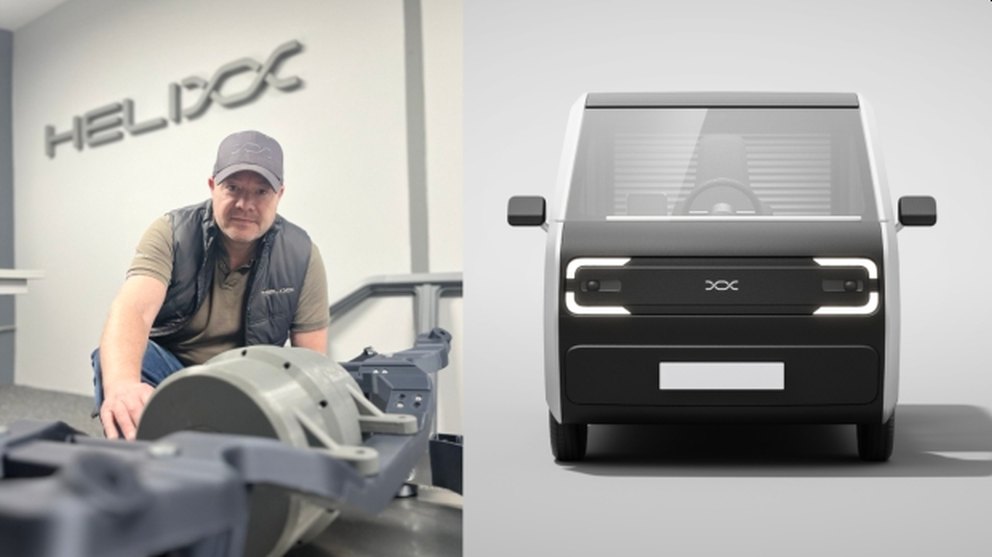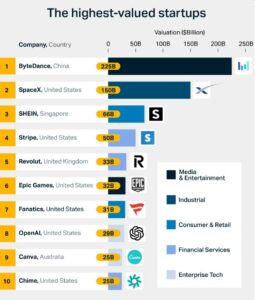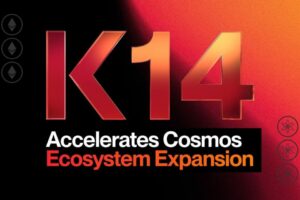As the demand for electric vehicles (EVs) soared, technology startups are striving to make EVs affordable and accessible to consumers in developing countries. One such startup is Helixx, a UK-based mobility manufacturing tech company looking to revolutionize the electric commercial vehicle segment in India with a modular concept.
Today, Helixx announced it has partnered with Siemens, a major player in the industry, to utilize its open digital platform aimed at designing a highly automated “factory in a box” that can be established anywhere. This factory will specialize in assembling smaller and more affordable EVs, initially targeting major Asian cities, according to a report by Reuters.
Founded a year ago by CEO Steve Pegg, Helixx’s mission is to create globally sustainable and economically viable mobility solutions through local manufacturing. Helixx will utilize Siemens’ Xcelerator software to create a digital twin of the factory, enabling them to design the production facility and plan supply chain logistics effectively.

While the concept of a “factory in a box” has gained traction in the pharmaceutical sector due to supply chain disruptions during the COVID-19 pandemic, it is a groundbreaking idea for the automotive industry.
A few months ago, Helixx successfully raised approximately 1 million pounds ($1.3 million) in funding. However, according to Pegg, building the prototype fleet will require around 3 million pounds.
In a statement, Pegg said: “We are speaking with potential investor customers in Chennai, and it is probably the introductory market for us in India. The reason for that specifically is the local government in Chennai has a strong focus on new mobility and technology. Then there are a lot of smart city developments going on. The conversations currently are about if we can bring this technology to India.”
Pegg also stressed that Helixx aims to create a “white label” licensed factory model. This means that the company will offer this model to existing car manufacturers or new players in the market, allowing them to produce EVs under their own branding.
While some EV startups have relied on contract manufacturers, such as Fisker’s partnership with Magna and Foxconn, Helixx’s approach of providing a factory and customizable EV designs for clients is a novel concept.
“We have reimagined the way the vehicles go together so you can get a factory producing vehicles anywhere in the world, just like a McDonald’s franchise,” Pegg said.
Pegg compared their approach to that of a McDonald’s franchise, stating that they have revolutionized the vehicle manufacturing process to enable the establishment of factories anywhere in the world.
Helixx plans to produce four initial EV models at these factories: a delivery van, a pickup truck, a four-wheeled version of a tuk-tuk (known as a “Tuk”), and a passenger van. These models are specifically tailored for densely populated Asian cities.
The company aims to manufacture the first 200 prototypes in the United Kingdom by 2024 and plans to scale production to 10,000 EVs annually by 2025 at pilot facilities in both Britain and Singapore, Helixx said.
- SEO Powered Content & PR Distribution. Get Amplified Today.
- EVM Finance. Unified Interface for Decentralized Finance. Access Here.
- Quantum Media Group. IR/PR Amplified. Access Here.
- PlatoAiStream. Web3 Data Intelligence. Knowledge Amplified. Access Here.
- Source: https://techstartups.com/2023/06/19/uk-startup-helixx-partners-with-siemens-to-make-affordable-commercial-evs-in-india-after-raising-1-3-million-in-funding/
- :has
- :is
- 000
- 1
- 10
- 200
- 2024
- 2025
- 8
- a
- About
- accessible
- According
- affordable
- ago
- aimed
- aims
- Allowing
- also
- and
- announced
- Annually
- anywhere
- approach
- approximately
- ARE
- around
- AS
- asian
- At
- Automated
- automotive
- automotive industry
- BE
- both
- branding
- bring
- britain
- Building
- by
- CAN
- Can Get
- car
- ceo
- chain
- Cities
- City
- clients
- commercial
- company
- compared
- concept
- Consumers
- contract
- conversations
- countries
- COVID-19
- COVID-19 pandemic
- create
- Currently
- Customers
- customizable
- delivery
- Demand
- Design
- designing
- designs
- developing
- Developing Countries
- developments
- digital
- digital twin
- disruptions
- due
- during
- effectively
- Electric
- electric vehicles
- enable
- enabling
- established
- establishment
- EV
- existing
- facilities
- Facility
- factories
- factory
- few
- First
- FLEET
- Focus
- For
- four
- Foxconn
- Franchise
- funding
- gained
- get
- Globally
- Go
- going
- Government
- groundbreaking
- Have
- highly
- However
- HTTPS
- idea
- if
- in
- india
- industry
- initial
- initially
- introductory
- investor
- IT
- ITS
- jpg
- just
- Kingdom
- known
- Licensed
- like
- local
- Local Government
- logistics
- looking
- Lot
- major
- make
- Manufacturers
- manufacturing
- Market
- means
- million
- Mission
- mobility
- model
- models
- modular
- months
- more
- New
- novel
- of
- offer
- on
- ONE
- open
- or
- own
- pandemic
- partnered
- partners
- Partnership
- Pharmaceutical
- Pickup
- pilot
- plan
- plans
- platform
- plato
- Plato Data Intelligence
- PlatoData
- player
- players
- populated
- potential
- pounds
- probably
- process
- produce
- Production
- prototype
- prototypes
- providing
- raised
- raises
- reason
- reimagined
- require
- Reuters
- revolutionize
- revolutionized
- Said
- Scale
- sector
- segment
- Siemens
- Singapore
- smaller
- smart
- Smart City
- So
- soared
- Software
- Solutions
- some
- speaking
- specialize
- specifically
- startup
- Startups
- Statement
- Steve
- strong
- Successfully
- such
- supply
- supply chain
- sustainable
- tailored
- targeting
- tech
- Tech Company
- Technology
- that
- The
- the United Kingdom
- the world
- their
- Them
- then
- There.
- These
- they
- this
- Through
- to
- together
- traction
- truck
- twin
- Uk
- under
- United
- United Kingdom
- us
- utilize
- vehicle
- Vehicles
- version
- viable
- Way..
- we
- will
- with
- world
- xcelerator
- year
- you
- zephyrnet












